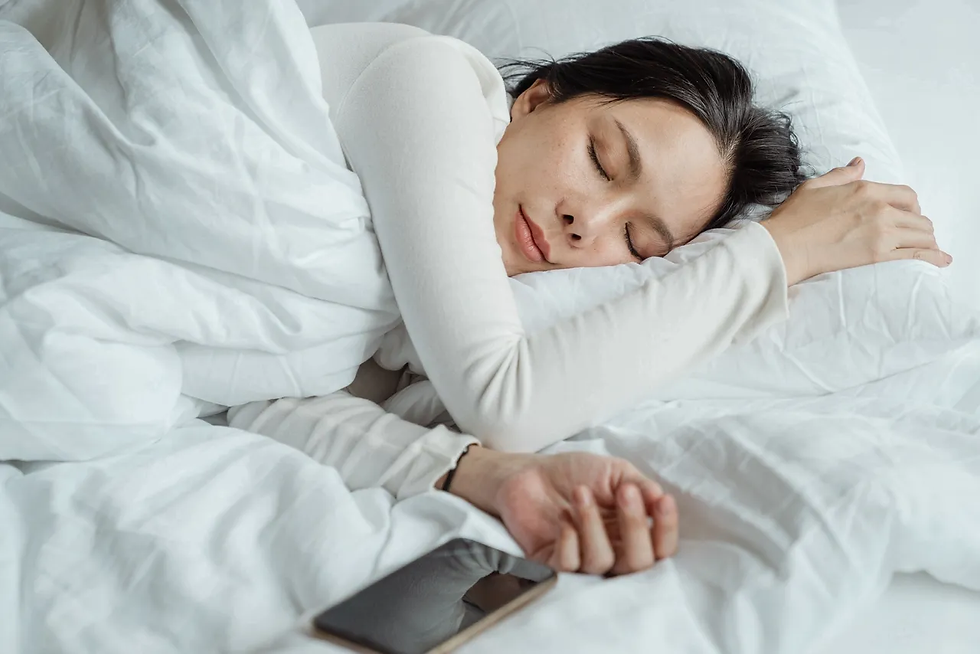The importance of your sleeping position
- drsonja
- Mar 1, 2021
- 3 min read

Sleep is one of the most critical components to ones health as it allows the body and mind to recharge and recover in order to achieve proper functionality (Suni, 2020). The importance of not only getting sleep but getting good quality sleep is extremely critical as insufficient sleep increases the risk of depression, cardiovascular disease, diabetes, obesity, motor vehicle accidents and machinery-related injury. Good quality sleep is dependent of various factors; one being your sleeping position.
According to Butler (2020), the position you sleep in directly impacts your spine and can cause discomfort, pain and stiffness in various parts of your body. This is caused by harmful sleeping positions where your spine isn’t properly aligned, causing a great amount of stress on your body. On average the human spends around 26 years sleeping, this means that you could possibly have back, neck, hip and even jaw pain for over 26 years if your sleeping position is not corrected (Butler, 2020).
So what is the best sleeping position?
According to the American Posture Institute the best sleeping position for your health and posture is to sleep either on your side or your back as it effectively keeps your spine, neck and hips aligned while alleviating any unnecessary stress from your joints. In contrast, sleeping on your stomach is the worst position as it is unhealthy for your neck to be in a rotated and an extended position if you use a pillow, but is even worse and puts a tremendous amount of strain on your lower back.
Tips to improve and achieve proper sleep posture
1. Correct your sleeping position.
Sleep on your side or on your back to achieve proper sleep posture and avoid any back, neck and body pain. Your sleep posture can further be improved through the use of a pillow:
between your legs while sleeping on your side
or underneath your legs while sleeping on your back to elevate your knees.
2. Ensure proper pillow posture.
Make use of a pillow which effectively supports and keeps your neck aligned. This means ensuring that your pillow isn’t too high or too thin for your neck as this can cause stress and tension while sleeping.


3. Check your mattress
The mattress that you sleep on plays an important role in improving and achieving proper sleep posture. To ensure your mattress isn’t contributing to neck, back and body pain, make sure that it isn’t too hard or too soft and effectively supports the alignment of your spine.
These three tips are guaranteed to put you on the right track in relieving any neck, back and body pains caused by improper sleep posture. Therefore, by making these small changes, you are able to make a huge impact in not only the quality of your sleep but your day to day functionality and performance.

References
Suni, E. 2020. Why Do We Need Sleep?. Available at: https://www.sleepfoundation.org/how-sleep-works/why-do-we-need-sleep
Butler, S. 2020. Why Are Sleep Positions So Important?. Available at: https://www.thejoint.com/louisiana/monroe/monroe-18001/193683-why-are-sleep-positions-so-important
American Posture Institute. 2021. Available at: https://americanpostureinstitute.com/

Join the Confident Kids Stand Tall Facebook Group to get informative and helpful tips on how to improve you and your child's posture.





Comments